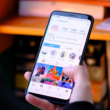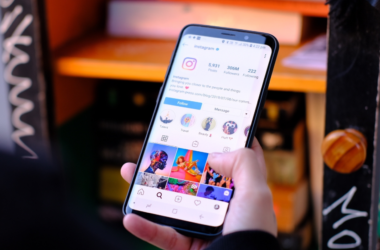The Direct Message Framework
Tension: The quiet but powerful conflict between the life we’re expected to live and the uncharted path our deeper self wants us to take.
Noise: The collective drumbeat of conventional wisdom telling us to remain on stable ground—keep the job, keep the title, keep the story simple.
Direct Message: Real freedom isn’t about leaving or arriving; it’s about daring to confront who we become when we dismantle the identities we’ve outgrown.
I never realized how deeply a title could define me until the day I gave it up. This particular title was pinned to everything—my credibility, my self-worth, my justification for skipping breakfasts with friends and birthdays with family. I wore it like armor, a six-figure job that suggested I was not just stable, but successful, thriving, and undeniably living up to the promise I’d once made to my younger self: to never end up ordinary. Yet in those final weeks before I handed in my resignation, I felt oddly unmoored, as if I’d been standing on a cliff that offered no more landscape to behold.
The day I quit, I bought a one-way ticket to Bangkok. There wasn’t a grand plan except to see what might happen if I let the swirl of foreign sounds and daily unknowns replace the static routine I’d become so accustomed to. I was 41, an age where you’ve outgrown your illusions of immortality but still wrestle with the notion that maybe, you haven’t lived fully. On my first night in the city, I woke up, tangled in unfamiliar sheets, to the hum of motorbikes weaving in the street below. I realized then I had no job to go to in the morning—no strategy meeting, no coffee-run chatter, no project deadlines. It was just me, alone with a new day I’d have to invent.
Under the fluorescent glow of that early Bangkok morning, I felt panic tapping at the edges of my chest. On the surface, it was an exhilarating freedom. But inside, I sensed a kind of vacuum. It was as though part of me was whispering: “Who are you without your old identity? Without the role people admired—or at least understood?”
That first week was a swirl of curiosity, trepidation, and the deep hum of possibility. I settled into a small apartment with walls that echoed with gecko chirps at night. I started walking the chaotic streets, searching for a sense of place and purpose. I slowly confronted a tension I hadn’t expected. Yes, I had initiated this change to find freedom, but I discovered a haunting question instead: “Have I run away from something or toward something? And if it’s both, do I even know which is which anymore?”
The tension swelled when I thought of the people back home—colleagues and friends. Some regarded my leap with a curious envy: “Wow, you’re so brave.” Others were less admiring: “So you’re just giving up a good thing? For what?” The question lingered. For what, indeed? A six-figure salary is more than a paycheck; it’s a set of unspoken assurances that you belong somewhere. You’re relevant, valid, even envied. Now, I was trading that for a nondescript corner of a city that, in the global imagination, is usually packaged in postcards of gilded temples and tuk-tuks but rarely considered a rung in some grand career ladder.
I realized that part of my internal friction was tangled in the narrative I’d absorbed since childhood: that a professional trajectory is supposed to follow a neat arc of improvement. You start at the bottom, you climb, you cash in your success, and eventually retire to reflect upon it all in comfort. But there’s an unspoken hollow in that story—one that hints that success might not be the final form of fulfillment. I felt that emptiness intimately. I’d ticked off many boxes: stable income, some measure of prestige, a flurry of dinner parties where I had plenty to say about “the next big project.” Yet beneath it all, I’d grown profoundly weary.
So what was I truly looking for in Bangkok? Perhaps I wanted to see who I was beyond the performance. There, I found a surprising collision between personal longing and a universal truth: so many of us want to break free from the scripts that keep us pinned to a tidy life we never genuinely chose. The friction is that we’re still invested in the idea that success equals belonging, and belonging is safety—both in society’s eyes and in our own hearts.
But there’s a lot of noise around this. Conventional wisdom—fueled by the echoes of motivational speeches and a million well-meaning LinkedIn posts—tells us that a high-paying job is always the ultimate goal. Walk away, and you’re either out of your mind or you’ve lost your drive. Society loves a good story about risk, but it also demands a certain outcome: the protagonist must find an even bigger success at the end, or at least maintain the posture that they’ve soared to a new pinnacle. If not, the leap is considered a failure, or at best, an act of recklessness.
In Bangkok, I discovered a different perspective by simply being present. Wandering the street markets at night, I’d see people contentedly selling fruit or steaming bowls of noodles for hours on end. They didn’t seem to measure their success in how many promotions they’d earned. If they were exhausted, it showed, but not in the sense of existential gloom—more in the sense of a full day’s work and the relief that morning would come again. Sometimes I’d feel a subtle shame creep in. Here I was, wandering like a restless ghost, trying to piece together my identity. Meanwhile, people around me seemed to root their identity in small daily rituals, in family, in the sun rising and setting on a routine that was enough.
Every day that I wasn’t racing to a meeting or plowing through emails, I began to see how entangled I was in the Western concept of improvement as the ultimate measure. Progress is good; we say it all the time. But the unspoken side effect is that we can’t stop. We can’t pause, or we lose. And losing is fatal to our sense of worth. Or so the script goes.
Here’s the paradox: My old environment insisted that the path to happiness was carved by ambition. My new environment suggested that maybe happiness isn’t a path at all but a presence—an ability to be deeply in your life moment by moment, even when there’s no guarantee of a grand outcome.
I recognized how media narratives also contort our sense of clarity. Online, you’ll see stories of people who “ditched their jobs” and “found themselves,” often accompanied by shimmering images of exotic beaches or mountaintop vistas. It sells a neat, triumphant storyline, as if you just need to step off the corporate treadmill to awaken to perfect harmony. But the actual process is messy, filled with more questions than answers.
When I first arrived in Bangkok, I recorded daily voice notes about my feelings. Most days, I sounded uncertain, contemplative, sometimes lonely. But there was also a raw honesty to the space I was creating for myself—an aperture into something bigger than the old identity I’d attached so fiercely to.
There were moments when the hum of the city at dusk made me feel deeply grounded, almost belonging to everything and nothing at once. Other times, that same hum felt deafening. Without my old job or tidy label, I felt invisible. Who was I if not the managing director, the strategist, the person with a six-figure sense of importance?
Gradually, I started befriending myself again. I’d wake up and walk through Lumpini Park at sunrise, letting the swirl of pink clouds reflect across the lake. I’d watch as local joggers circled the paths, as older couples practiced tai chi, as birds soared in unison across the water. I noticed how my breath felt in my chest. I noticed how distant the old mental chatter seemed. Then I’d return home, sometimes bored, sometimes eager, to sit with my own thoughts. For so long, every minute of my day had been measured and allocated. Now, I was discovering the size and shape of time unfilled.
In that emptiness, an unexpected wholeness grew.
And that is the contradiction: on the one hand, you need to let go of the old identity to discover what else you can be. On the other hand, letting go feels like stepping off a ledge, hoping you won’t vanish into obscurity or regret. The noise around us is loud—telling us to cling to safety, or to flip the script instantly and become a wandering Instagram success story. But the truth lies somewhere in the quiet of letting your future breathe without forcing it into a shape.
The Direct Message
Real freedom isn’t about leaving or arriving; it’s about daring to confront who we become when we dismantle the identities we’ve outgrown.
I won’t claim that moving halfway across the world to shake up your life is a universal solution. But there’s something universally resonant about the shift that happens when we stop performing the roles we believe others expect. We meet the self that’s crouching just beneath the surface, the one that doesn’t need the old suit of armor, the one that is both fragile and powerful in its honesty.
On certain late nights in Bangkok, I would sit by the window, feeling the warm breeze across my skin. I’d think about how back home, my colleagues would be in the thick of deadline mania or morning commutes. And I’d realize that I no longer envied or pitied them. I wasn’t above or below them—I was simply on a different page, reading a different paragraph in life’s unfolding story.
And maybe that’s the quiet revelation that changes everything: when the sense of competition and the measuring stick dissolve, you become free to exist as you are, not as you might be judged. Stripping away the old framework can be terrifying. But in that space, you find the freedom to explore the nuanced corners of your life you might have missed while chasing a particular definition of success.
So I didn’t simply rediscover myself in Bangkok at 41. I discovered that there was never just one self to begin with—there was always a fluid, ongoing becoming that no title or role can contain. We resist that because it implies no final answers, no finishing line to claim. But the same uncertainty that unsettles us can also liberate us. It’s that in-between—stepping out of one identity before fully claiming another—where we can finally see that we are more than we ever gave ourselves permission to be.
And as I watched the city lights flicker against the night sky, it struck me that maybe I hadn’t quit my job so much as I had quit trying to be a smaller version of myself. I didn’t know exactly what I was becoming, but I knew I was freer—and freer means seeing with clarity, choosing with heart, and letting the future remain a horizon instead of a box.
I think we all can sense this deeper truth: We have the right to step out of the roles that confine us and into an uncertain, but genuine, relationship with our future. It won’t be neat. It may not make for a viral success story. But it will be real. And sometimes, that reality—the one where we face our own reflections without a curated title—is the first step toward an authenticity we didn’t even know we were missing.






